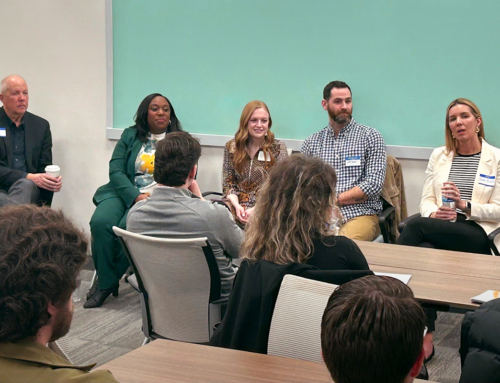As professional communicators, we believe that words matter … always. So, when I read an article about phrases that can either make you sound empathetic or insensitive as you ease back into your “new normal” work life, I stopped and took notice.
I stopped for another reason as well. Our company has supported numerous clients in how to communicate through the challenges of the past year and a half. It wasn’t easy. One reason why was that every issue we worked through with our clients was also impacting our team and our families. Our work hit home like never before.
Between the horrifying pandemic, racial injustice and the life-and-death issues they both brought to focus, anxieties ran high. From a historically divisive national election followed by angry Americans attacking the U.S. Capitol to a struggling economy groaning to get back on track as we “reopen,” no one alive experienced what we’re now living through.
You would think that communicating empathetically would be a natural outcome of our shared experience. You’d be wrong. This Fast Company article recently shared three phrases to lean into and three to avoid when getting back into the flow with your coworkers.
Phrases that work:
- “I appreciate what you said about …” It is a kind gesture to let another person know you connected with them. It shows you are an active listener.
- “I’m sorry that I misunderstood what you said.” The old saying, “to err is human,” means that you made a mistake or misconstrued what you were told. To apologize puts the other person at ease. Go back and get it right.
- “What I hear you saying is […]. Did I get that right?” We all need to process and understand. Let the other person know that is what you are doing. It is the ultimate show of respect and empathy.
Phrases to avoid:
- “I know how you feel.” This phrase is chock full of unvalidated assumptions. How can you possibly know? The chances are very slim.
- “This reminds me of the time I …” Be an active listener. It’s about them, not you. They may be taking a risk in sharing. Don’t reward their vulnerability with your tales from the trail.
- “You’ll be okay / You’ll get through it / It’ll all work out.” You get points for trying to be positive, but you could be perceived as minimizing someone else’s misfortune. In truth, you have no idea if your work colleague will be okay, get through it or if it will work out. Why say it?
For those who have experienced personal tragedy, I suspect you quickly identified with the advice above from the Fast Company author. From a professional perspective, take to heart this very welcomed advice to guide you in how to be empathetic, not insensitive, with your colleagues for your back-to-work restart.








